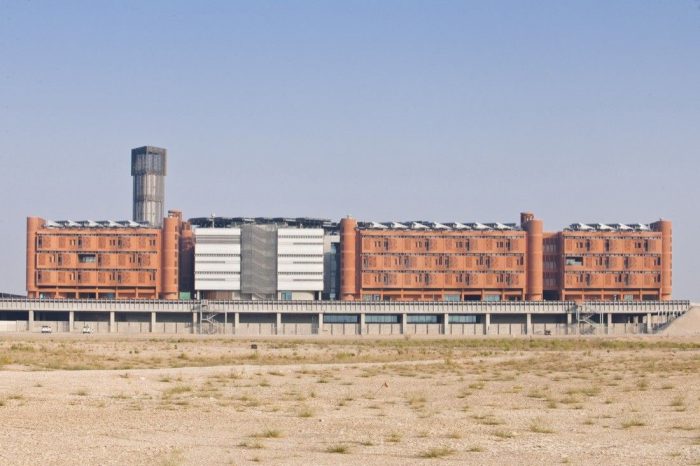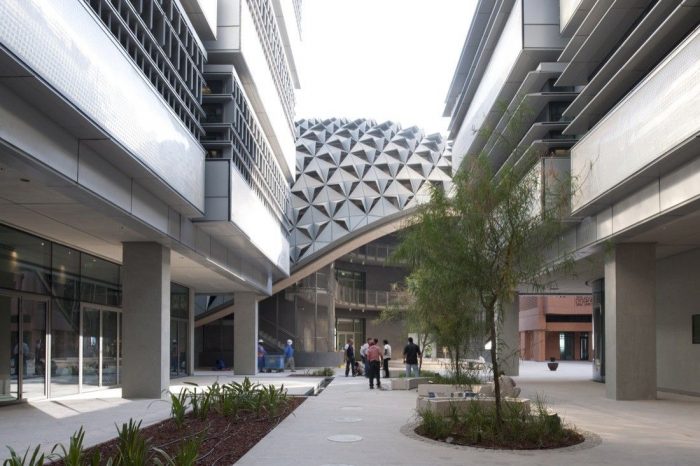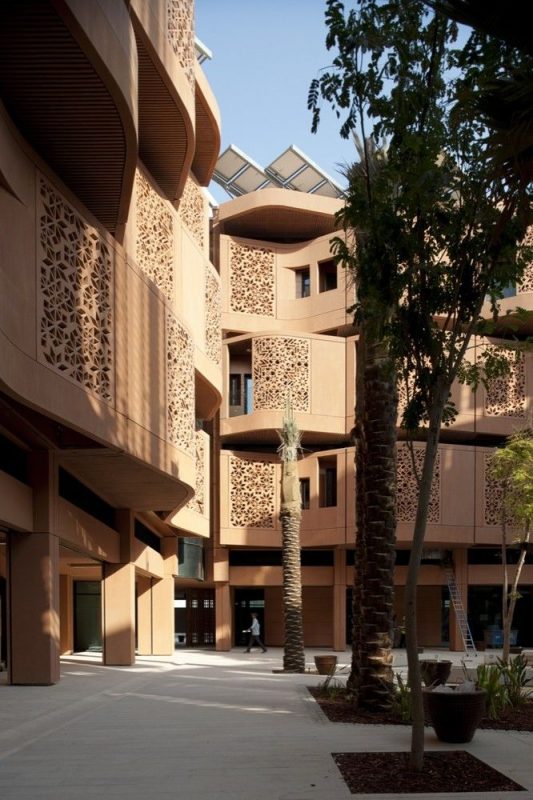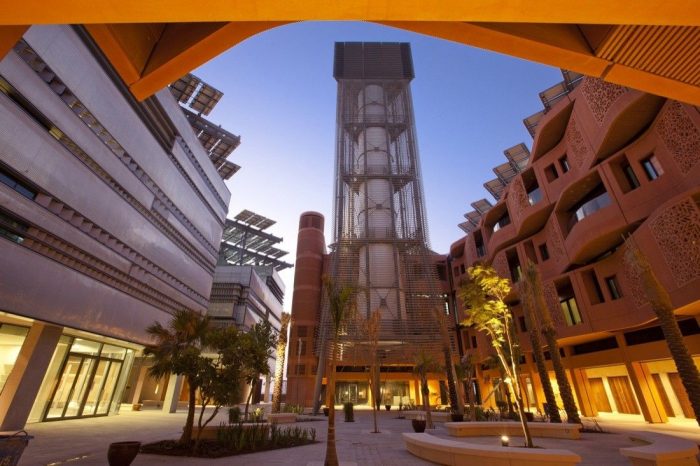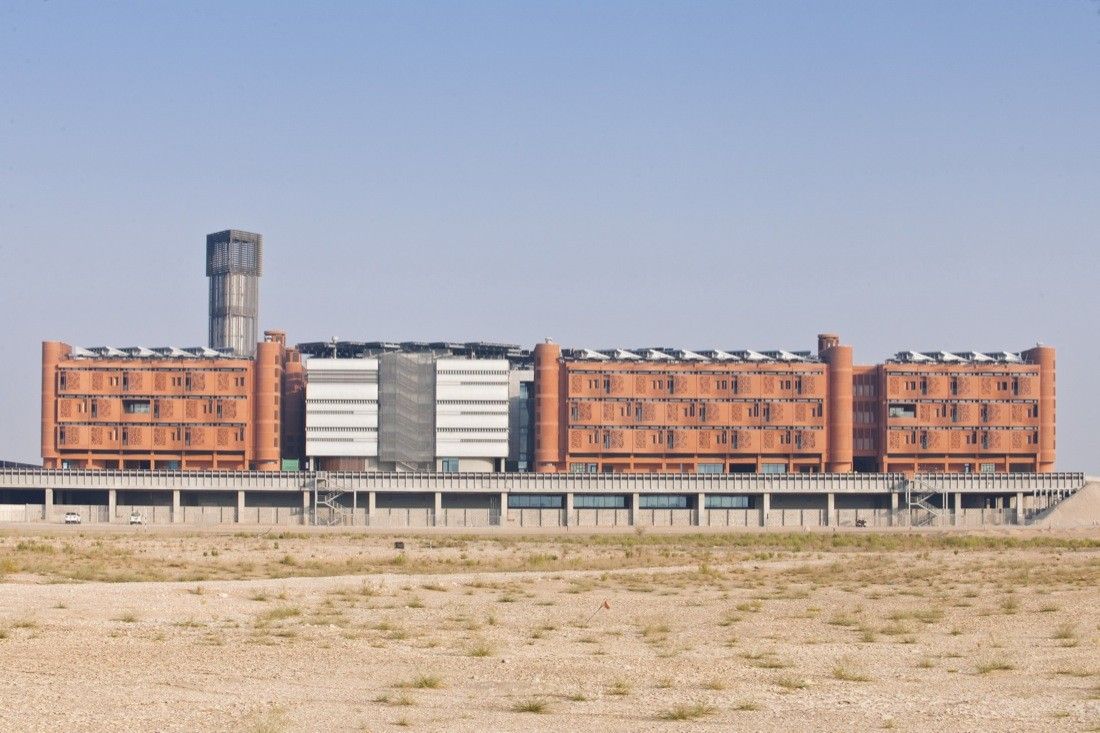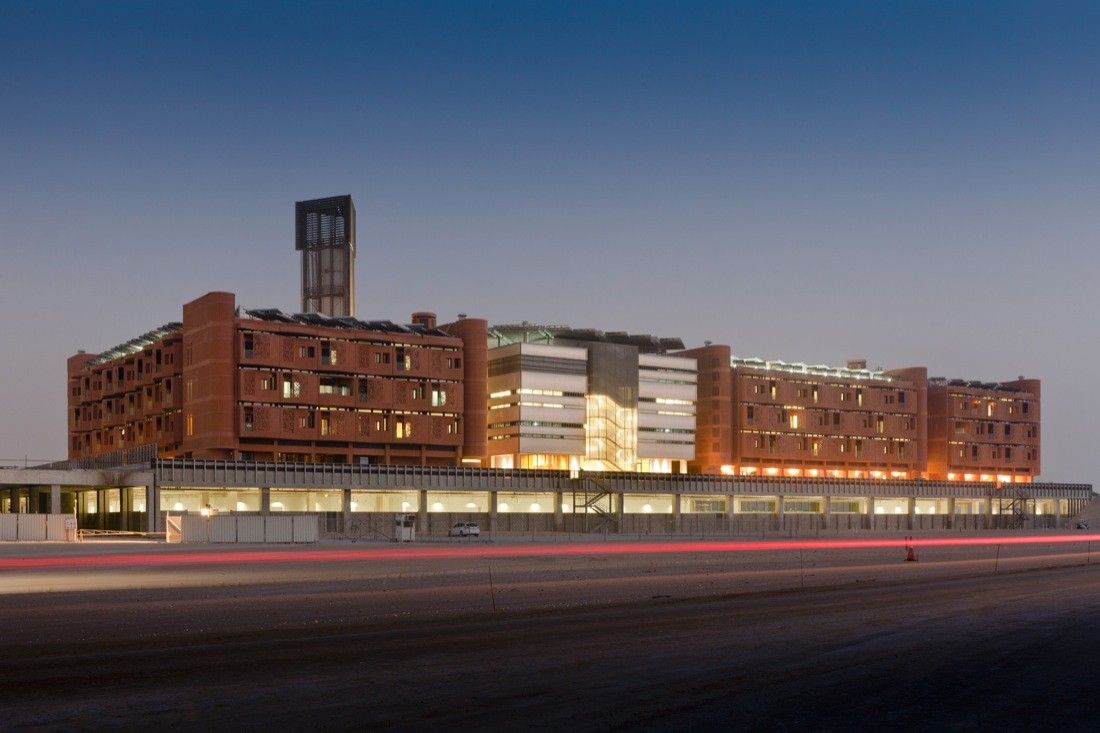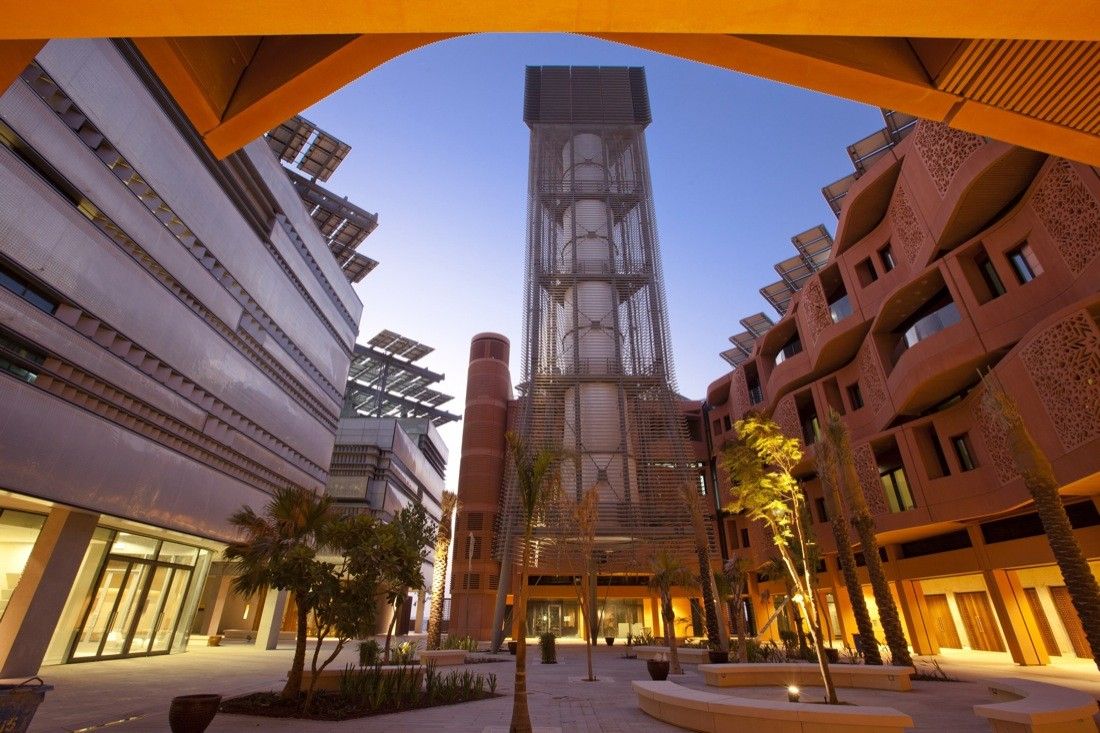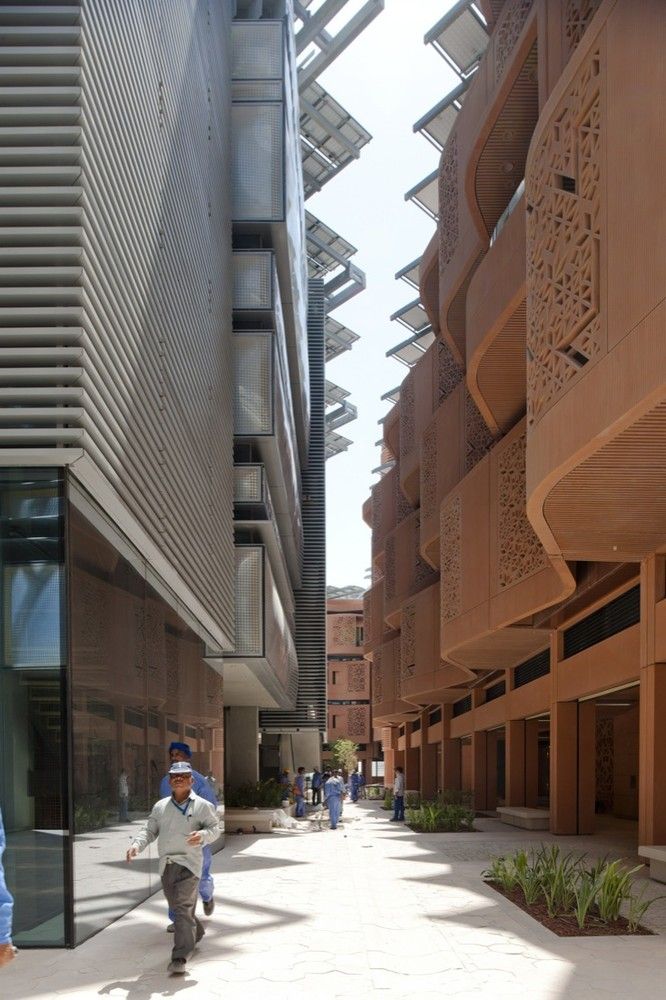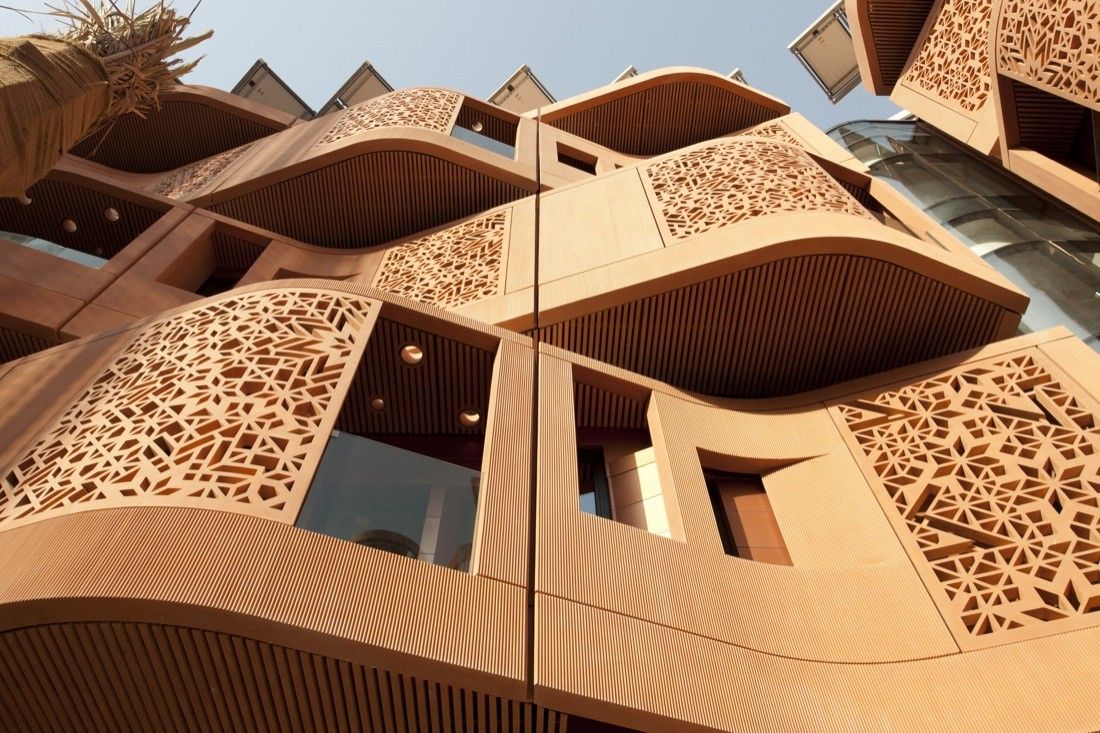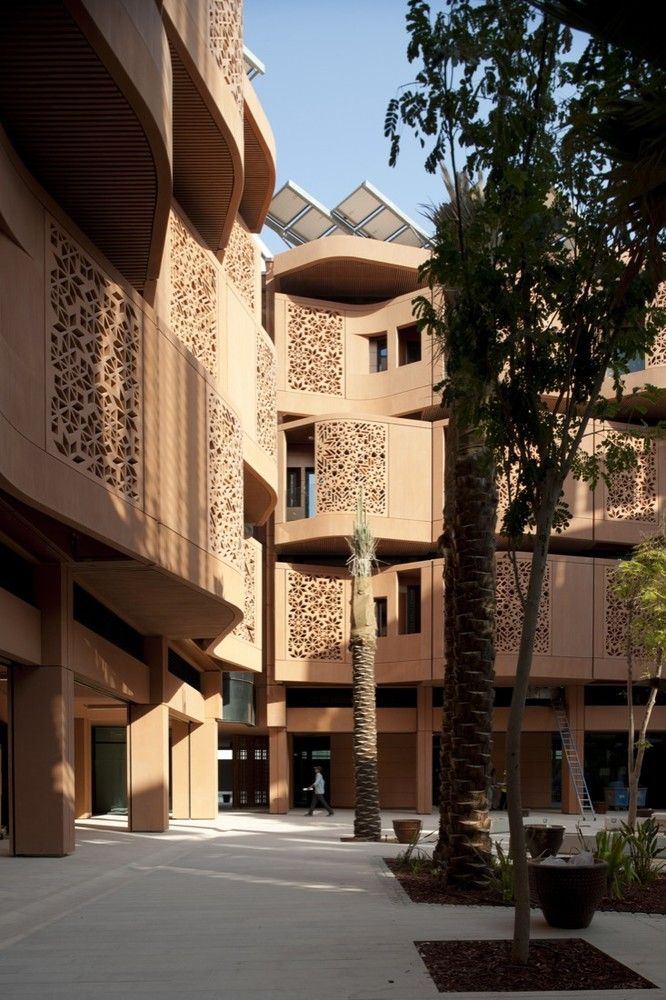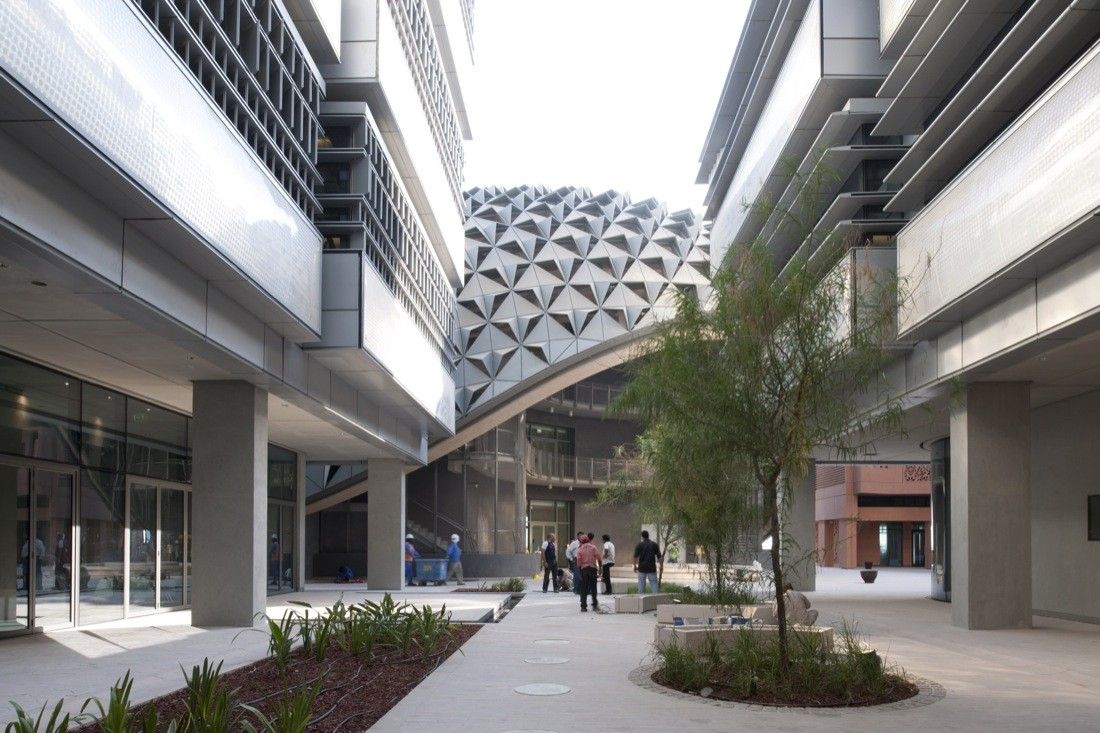The Masdar Institute, devoted to researching sustainability, is the first building to be fully operational within Masdar City. The masterplan, by Foster and Partners, incorporates lessons which have evolved over centuries of traditional Arabian architecture. The Masdar Institute is the first building of its kind to be powered entirely by renewable solar energy. It will be used as a pilot test bed for the sustainable technologies that will be explored for implementation in future Masdar City buildings. The postgraduate students are Masdar City’s first resident community.
A 10-megawatt solar field within the masterplan site provides 60% more energy than is consumed by the Masdar Institute the remaining energy is fed back to the Abu Dhabi grid. The campus, which consists of the main building, a knowledge center and students’ quarters, will use significantly less energy and water than average buildings in the UAE. In particular, the Institute and its facilities use 54 percent less potable water, 51 percent less electricity and are fully powered by solar energy. These reductions are based on comparisons to UAE standard baselines for buildings of similar size and specifications. Around 30 percent of the campus’s energy will be covered by solar panels on the roof, with 75 percent of hot water also being heated by the sun.
The Institute demonstrates the sustainable principles underpinning the overall masterplan. The buildings have self-shading facades and are orientated to provide maximum shade as well as sheltering adjacent buildings and the pedestrian streets below. Over 5,000 square meters of roof mounted photovoltaic installations provide power and additional shading at street level. Windows in the residential buildings are protected by a contemporary reinterpretation of mashrabiya, a type of latticed projecting oriel window, constructed with sustainably developed, glass-reinforced concrete, colored with local sand to integrate with its desert context and to minimize maintenance. The perforations for light and shade are based on the patterns found in the traditional architecture of Islam.
The laboratories are unusually flexible for change with ‘plug and play’ services to encourage interdisciplinary research. Horizontal and vertical fins and brise soleil shade the laboratories. These are highly insulated by facades of inflatable cushions, which remain cool to the touch under the most intense desert sun. Cooling air currents are channeled through the public spaces using a contemporary interpretation of the region’s traditional wind towers. The public spaces are further cooled by green landscaping and water to provide evaporative cooling. Thermal camera tests on-site by Fosters’ research team have already confirmed substantial drops in radiant or ‘felt’ temperatures on campus compared with current practice in central Abu Dhabi.
The laboratories and residential accommodation are supported by a variety of social spaces, including a gymnasium, canteen, cafι, knowledge center, majlis – or meeting place – and landscaped areas that extend the civic realm and help to create a new destination within the city. One, two and three-bedroom apartments are housed in low-rise, high-density blocks, which act as a social counterpoint to the educational laboratory environment.
This building is the first of four planned phases that will bring the eventual student population to 600-800. Four residential blocks surround a central laboratory and the Knowledge Centre, the first in a series of additional campus buildings, which will include a mosque, conference hall, and sports complex. The second phase is due to start on site by the end of the year to include further laboratories and apartments. The Masdar Institute is accessed by 10 personal rapid transit (PRT) cars that are being run as a pilot project from the City perimeter to the undercroft below the building. This project signals Abu Dhabi’s commitment to creating an international center to pioneer sustainable technologies within an environment which are itself carbon neutral.
Project Info
Architects : Foster and Partners
Location : Masdar City , Abu Dhabi ,UAE
Client : Mubadala Development Company
Type : Research Center
Year : 2010
Photographs : Nigel Young
Courtesy of Foster and Partners - Photography: Nigel Young
Courtesy of Foster and Partners - Photography: Nigel Young
Courtesy of Foster and Partners - Photography: Nigel Young
Courtesy of Foster and Partners - Photography: Nigel Young
Courtesy of Foster and Partners - Photography: Nigel Young
Courtesy of Foster and Partners - Photography: Nigel Young
Courtesy of Foster and Partners - Photography: Nigel Young


